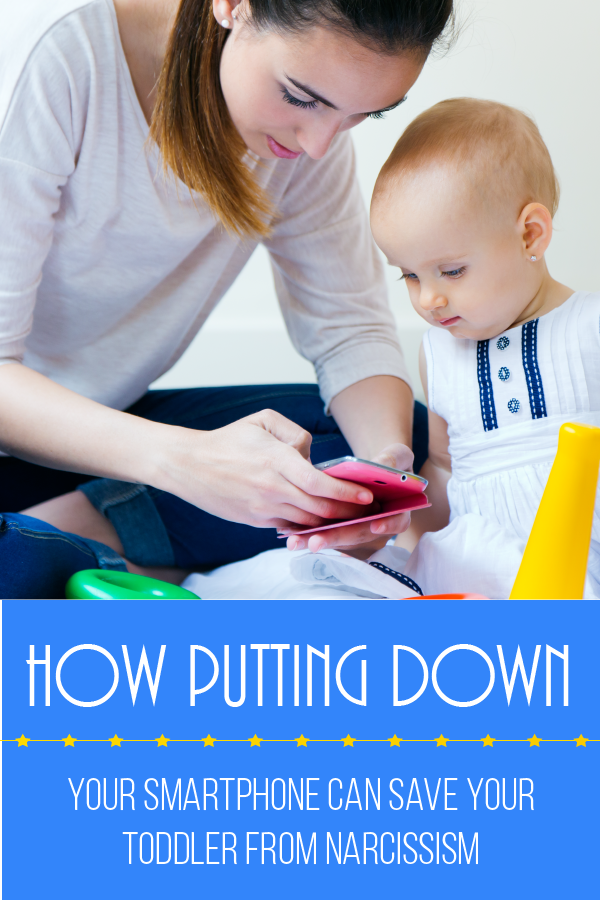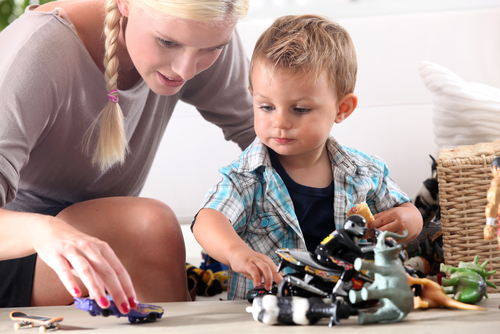We have heard experts warn about how the fast paced digital world is affecting our attention spans and even changing how our brain processes information. Today’s technology has changed more than the way we communicate, it is also responsible for a noticeable and alarming increase in psychological behaviors among our youngest generation. As a result, we regularly analyze our children’s Internet addictions or frightening social media statistics to find ways to protect our children and create a safe environment to thrive in.

We often complain about their constant need to be swiping and scrolling. However, we are just scraping the surface as we focus on location tracking or disappearing messages. We need to reflect on how our own personal use of technology (and, yes, our beloved Smartphones included) is playing a role in the shaping of our children’s personalities and childhoods.

Distracted Parents And How It Affects Our Children
Many of us rely on our devices to check work emails, pay bills, get directions, and text for updates on our children’s locations. However, our connectivity can hinder our interaction with our children.
A recent study (conducted by Catherine Steiner-Adair, a prominent consulting and clinical psychologist from Harvard) found that over 1,000 children between the age of four up to eighteen allvoiced concerns about competing with technology to get their parent’s attention. They compared this struggle to sibling rivalry and how distracted parents can miss out on very important time for bonding.
Unfortunately, she is not alone on believing that a parent’s overuse of social media and devices can hinder appropriate skills from developing in our children. Dr. Mary C. Lamia, an expert on children’s emotions at the Wright Institute in Berkeley and former host of the weekly Radio Disney program, KidTalk with Dr. Mary, has found a correspondence between social media and the rise of narcissism in our children.
Social Media And Shame
To understand how putting our Smartphones down can save our kids from narcissism, we need to examine how social media has the power to create intense feelings of shame. Most experts and educators tend to pinpoint the outside influences and pressures that stem from cyberbullying as the main problem, but Dr. Lamia believes that parents should be more focused on how social media preys on our own “internal pressures that we place on ourselves.”
This comparison of ourselves to other people’s edited realities can be very disconcerting and damaging to our psyche. These feelings can overflow and leave us feeling disconnected from our peers. This process often leads to shame and that has the power to cause people to become depressed, bullies, or victims.
The Link Between Shame And Narcissism
Often the emotion of shame can be a motivating factor in developing a self-focused personality. The members of the psychiatric field believe that Narcissistic Personality Disorder is a true mental disorder where a person portrays an enlarged sense of importance due to the desire to hide their inner flaws.This brings us to how a lot of parents and children use social media to cement our place in social circles.
We are all guilty at some point of comparing our accomplishments and situations to our friends’. Facebook envy can be a struggle to overcome when we see our friends buying a new house, landing a promotion, having a new baby, or taking another cruise. Our children are no different. We see all the highs, but tend fail to see the lows, setbacks, and struggles.

Five Ways Parents Can Combat Narcissism
Experts feel that shame and narcissism go hand-in-hand with its origins in early childhood- specifically around age two or three. This self-denial can spiral out of control and lead to larger problems as a child ages. Here are five ways parents can take a proactive approach to hanging up on narcissism before it causes problems later:
- Look for ways to teach our children empathy at a young age. Model compassion, teach kindness, talk about emotions, and volunteer as a family.
- Focus on quality family time and communication. Focus on being engaged and listening- even if that means silencing your phone.
- Avoid updating your social media sites constantly with a child’s brags or cheers. Make sure your children understand that achievements aren’t the only thing that defines who they are and that the world doesn’t revolve around them.
- Start a conversation about ways social media profiles are often manufactured to portray a desired image. This allows children to witness how profile grooming isn’t always reality.
- Monitor a child’s social media or technology use. One of the most effective ways to ward off narcissism is to be aware of a child’s online interactions.
Parents need to be aware of how our relationship with technology can spill over into our children’s development. These unintended consequences of our need to text or update feeds can inadvertently hinder a child’s chances for future success. Our priority should be modeling a healthy relationship with technology by dialing back our control for our children’s sake.










Leave A Comment